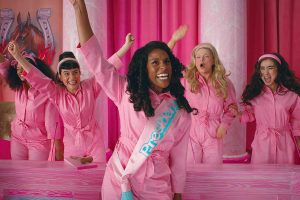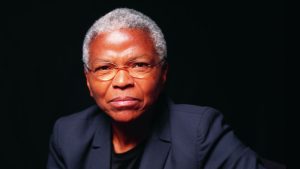Racial prejudice and bullying, a lack of funding, inadequate mental health support, and inexperienced teachers — those are just some of the challenges Black students face in America’s K-12 public schools. We see some of these issues show up on television on “Abbott Elementary,” but representations of Black students and schools are a mixed bag on the big screen. Some films — we’re looking at you, “Dangerous Minds” — dive right into the stereotype of the white savior teacher who rescues bad Black kids from their terrible neighborhoods and families.
So where can teachers see accurate and empathetic representations of the struggles, successes, and joys of teaching Black kids in deliberately underfunded and disenfranchised schools?
And, most importantly, where are films that present possible suggestions and solutions for educators?
Here are four films every educator teaching Black students should watch. They’ll give folks an idea what the challenges are, what solutions people are trying, and sometimes they make us smile:
1. The Great Debaters
Featuring Hollywood A-listers like Denzel Washington, Forest Whitaker, and Kimberly Elise, the 2007 hit movie, “The Great Debaters,” is based on a true story about historical Wiley College’s first debate team.
Portrayed by Denzel Washington, professor Melvin B. Tolson inspires the 1935 team to perform at their highest level as they go through a nearly undefeated season. They Southern heat, a lynch mob, Jim Crow, and sexism, all the while working to tirelessly to make it to the championship match against Harvard University’s debate team.
Whether it’s opportunities not being presented, being judged harsher than their white counterparts, or simply the prejudice they receive from simply being Black, the film is a modern-day parallel to the challenges Black students, teachers, and coaches face when pursuing excellence.
2. Teach Us All
In 1957, nine African American students were escorted to the doors of Little Rock Central High School, three years after the Brown v. Board of Education decision deemed it illegal to segregate schools. During their first few attempts to enter, the students were spit on, blockaded, and forced out of Arkansas high school. But eventually, they would walk into the building.
Decades later, the discrimination and inequalities Black students faced then have taken on new shapes and forms all over the country. The 2017 documentary, “Teach Us All,” produced by Ava DuVernay’s film distribution company ARRAY, puts what happened in Little Rock as the backdrop to looking at education in three different cities – New York, Los Angeles, and Little Rock. The film looks specifically at the roles of teachers in creating educational change, as well as how the community and students themselves are demanding justice.
3. Ruby Bridges
Being the first Black student to attend an all-white elementary school couldn’t have been easy in 1960 Louisiana? But that was the reality for 6-year-old Ruby Bridges, who had to be protected by federal marshals as she entered William Frantz Elementary School in New Orleans.
The 1998 Disney-produced film about Bridges, who is now 69, was recently banned from a Florida school because a parent worried it would make her child feel guilty about racism. Given that school segregation jumped 35% from 1991 to 2020 in the 100 largest school districts, the depiction of Bridges’ journey is a reminder of the role teachers can play in counteracting disrespect and racism in schools.
4. Waiting for Superman
School choice has been helpful for some families, harmful for others, and life changing for a select few.
The 2010 documentary, “Waiting for Superman,” follows the five young New York City students during the high stakes lottery selection to get into one of the city’s charter schools. Filmmaker Davis Guggenheim puts faces and names to education statistics, , and gives us a look at the education system from a parent and child perspective. It also sparks plenty of reflection on the lengths families will go to to ensure their child has access to an excellent education, regardless of societal or economic status.




